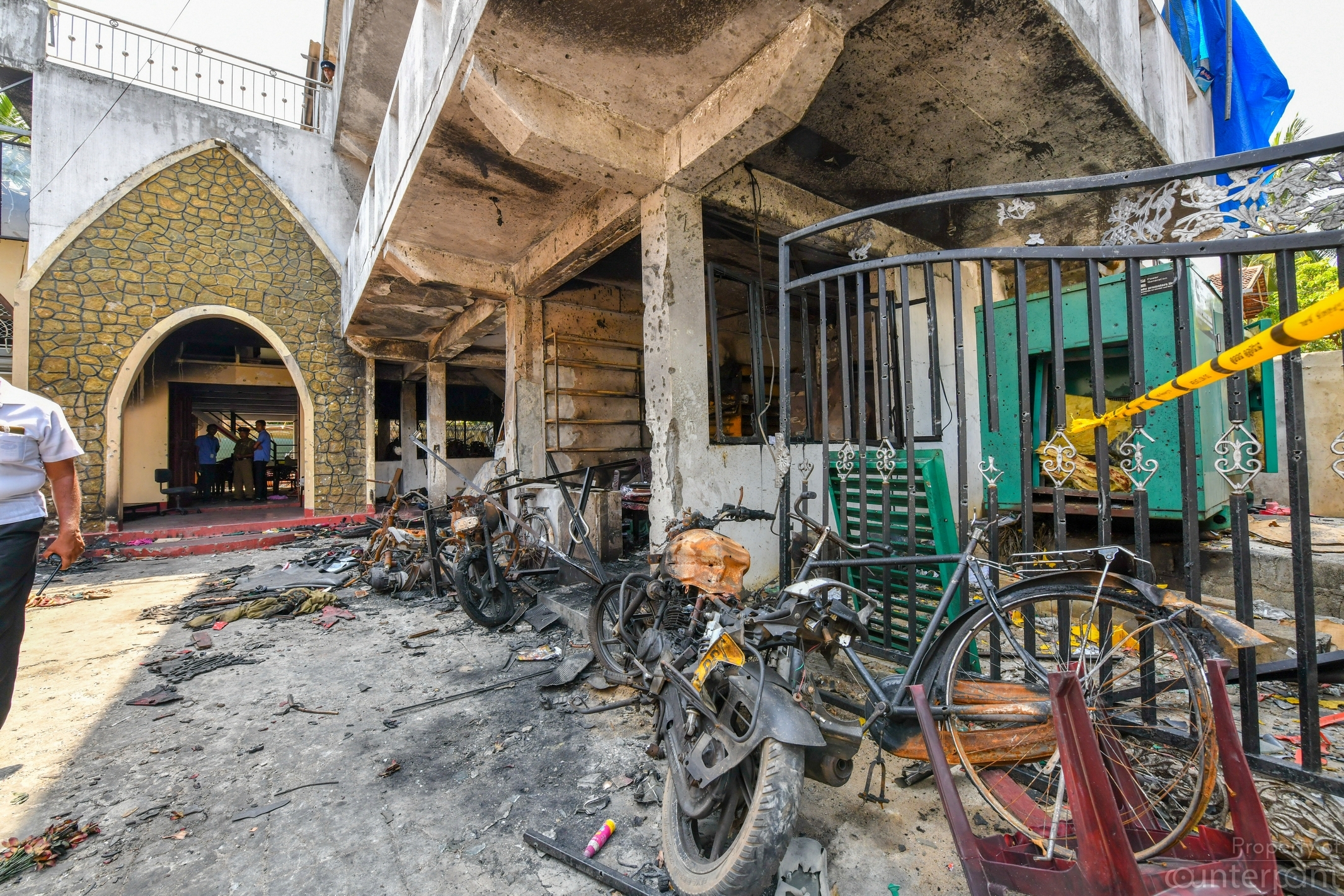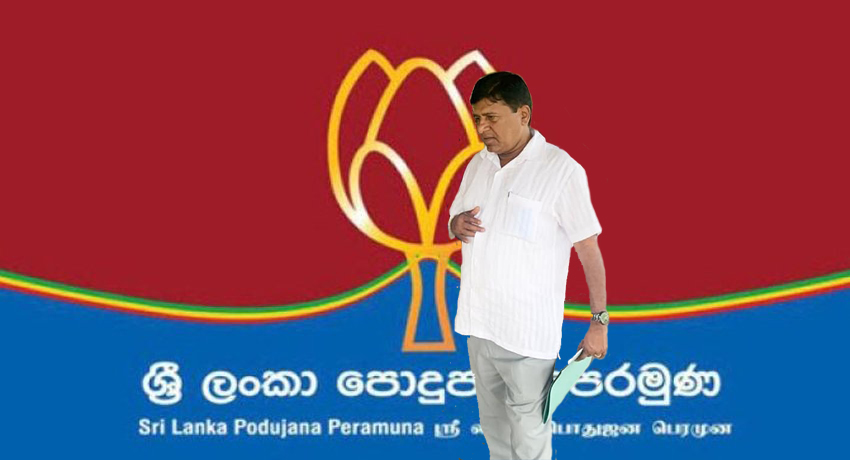
Sri Lanka is regarded as one of the most religious countries in the world. In recent times, this has become manifest not just once, but at least twice. And that again by two cutting edge independent research work.
The world renowned Zurich based market research cum polling firm Worldwide Independent Network/ Gallup International Association (WIN/GIA), in its latest report on world religiosity (published in 2016), ranked Sri Lanka as the second most religious country in the world! According to the survey Sri Lanka sits only second to the West African nation Niger, (essentially a Muslim country with over 99% of its population following Islam).
The survey assessed the level of religiosity among the countries based on the responses of the participants for the questions whether one would consider oneself religious and how important one would place religion to be in one’s daily life. This particular research was conducted in 69 countries across the world, involving a total of 66,541 persons, during the last quarter of 2016. Next to Niger and Sri Lanka, Malawi, Indonesia and Yemen were placed in that order in terms of religiosity. It is also interesting to note that apart from Sri Lanka (70% Buddhist) and Malawi (85% Christians), the other three top notched countries are overwhelmingly Islam. And also it’s worth noting that apart from Sri Lanka and Indonesia, the other three countries are among the poorest countries in the world.
According to the same survey, China, Japan, Estonia, Sweden and Denmark are the world’s least religious countries, in that order.
Again in 2017, a study initiated by the British newspaper, The Telegraph, also confirmed that Sri Lanka is one of the most religious countries in the world. This time around, it was placed along with Ethiopia, Niger, Malawi and Yemen as the five most religious countries in the world, and the only country so from outside the African continent. According to its report 99% of the Sri Lankans responded affirmatively to the question “whether they felt religious”. (The Telegraph study too was an amalgamation of the WIN/GIA statistics of 2008, 2009 and 2015).
The WIN/GIA polls have also shown that there are twice as many religious people as atheists and agonists around the world. Also, in what is one of the more unexpected findings of the study, it has revealed that older people are less religious than younger people, a tendency that is more or less sweeping across the world today.

How is there so much of violence in Sri Lanka if it is so religious?
However, according to the Numbeo, one of the world’s largest databases, Sri Lanka sits around middle, in the 58th place out of 118 countries in terms of Crime Index. Thus, half of the world is more violent than Sri Lanka, as per the available statistics.
Ethno-religious violence
Sri Lanka has lately gained the world’s attention for ethno-religious violence it has come to be plagued by. Since 1983 Black July there have been numerous instances of communal violence. The war was also seen as a violent confrontation between the majority Sinhala Buddhist and the minority Tamil Hindu/ Christian communities, especially in the eyes of the international community. The LTTE, too, went on a killing spree, targeting specifically the Sinhala and Muslim civilians in the North and East. It also suppressed dissent among the Tamils violently.
Since the conclusion of the war in May 2009, ethno-religious politics in Sri Lanka has taken a different twist with tension mounting between the Sinhala and Muslim communities. While this led to sporadic incidents of violence perpetrated by the Sinhala majority community against the minority Muslims in various places across the country like Uduthalawinna (December 2001), Aluthgama (June 2014) and Digana (February/ March 2018), these were mainly ethnic than religious in nature. Simultaneously, Sinhala-Buddhist extremist organisations like Bodu Bala Sena (BBS) and Ravana Balaya emerged, with enough political patronage. However, with the 21/4 bombings, for the first time in the country’s history, violence based on religious grounds was unleashed in the country, taking the ethno-religious violence scenario to a whole new level.
The political leadership has manifestly failed to address the situation, for they themselves are a part of the problem. Thus, should we turn to religion in search of a solution?
Religious Perspectives on Restoring Religious Harmony
Frontline environmental activist Ven. Wekadawela Rahula Thera, who is also the Co-Director of the Centre for Environmental and Nature Studies made a comprehensive analysis of the situation by picking it from the prehistoric times of human civilisation. He identified the origin of religion as a construct of the prehistoric man, in his pursuit of comprehending the incomprehensible “truth”.
Ven. Thera explained, “The religions have originated from sets of beliefs and rituals the prehistoric man had. He especially feared the dead and his life after death”.
The Thera saw preparing the humankind for that “state” after its worldly existence as a main aspect common to all religions. “All religions attempt to comprehend human existence beyond what we perceive through our sensual organs. Based on this, there is a philosophy on which all the religions are grounded. If it is rebirth as in Buddhism and Hinduism, the philosophy related to that, a reading related to that is constructed”.
He identified how a mismatch arises between the religious philosophy and the religious practice. “But what we see is those ancient beliefs and rituals are not necessarily the reality. But we continue with those beliefs and rituals to support the religion and its philosophy”.
Citing a common practice of “dana”, said the Theras, “We continue to reminisce of and venerate the dead within the philosophy of rebirth through performance of “dana” to invoke blessings on the dead whereas the philosophical basis of “dana” as preached by the Buddha was to make one turn inward towards himself – to dispel greed, self indulgence, mass consumption and to promote benevolence, sharing, wisdom etc. But, today, we practise “dana” mainly outside this philosophical grounding and as a measure of religious practice based on the rituals and beliefs”.
The Thera observed that most of the atrocities committed in the name of religion emanate from a mismatch between the original religious philosophies and subsequent misinterpretations of those. These mismatches have been further reinforced by the amendments, interpretations and divisions that have been adopted by the religions over time. He believes that, at times, these have even been used by the elements with vested interested to “keep the religions going” as per their wishes. Those distortions were the real dangers faced by the religions today, he asserted. “These subsequent interpretations and divisions are now used by certain fundamentalist or extremist groups to further their personal or political interests”.
Rahula Thera opined that adherence to true philosophical principles was the key to preventing religions from drifting towards extremism and violence.

Riches and Politics corrupts Religions
Rev. Fr. Sarath Iddamalgoda, Director “Janavobada Kendra” of the Catholic Church, who is also one of the petitioners of the fundamental rights case on criminal negligence filed against the government of Sri Lanka following the 21/4 Easter bombings incident shared the sentiment raised earlier by Ven. Rahula Thera on the lack of true philosophical understanding by the followers of religions. “Most of our people, irrespective of the religions they practice, do not know the core values of their religions. This applies to some members of the clergy as well. These core values are the essential teachings of their founders. As a result their lives are warped. Even the religions, as institutions, are not really engaged in inculcating these values among their followers”.
Fr. Iddamalgoda also mentioned the need to dissociate religion from politics. “Religions and religious institutions are commonly used and abused by politicians to attract votes. This has been happening in this country since 1956, when S. W. R. D. Bandaranaike came to power. Although he was seen as a Sinhala-Buddhist nationalist leader, he originally was a Christian. He used religion for political gains. This has been continuing ever since, and not only with Buddhism, but also with other religions.”
“As soon as religions get state sponsorship, they get corrupt. Then all the wealth, riches and perks get collected with religious institutions. This is exactly what happened with Catholicism during the times of Emperor Constantine, and continued for a long time ever since. When wealth comes in, corruption soon follows”
Conversions of other kind
Fr. Iddamalgoda stressed the need for the religions to convert their followers into true practitioners. “First of all, we have to convert our followers into true practitioners of our own religions. That goes for all religions. Instead, what we see today are fanatic and sordid attempts by some religious sects to convert people from other religions into their faiths.”

Role of Minorities within the Majority
Swami Deshabandu P. Shanmuga Sunderam, the chief priest of Sri Muttumari Amman Kovil in Mawathagama brought in a different perspective in terms of the majority and minority rights issue. A member of the Human Right Committee of the Kurunegala District, he sounded very disturbed by the Easter bombings incident carried out by the Islamic terrorists. “We have been living peacefully with the majority Sinhala Buddhist community in this country for ages. We are minorities, and we should acknowledge that fact. The minorities cannot dictate terms or demand an unreasonable stake from the majority community. That’s absurd. This is what the LTTE did before and the Muslim extremists did again recently. This is not acceptable. Their aspirations will never be achieved. That’s what happened to the LTTE. They waged a war against the majority community for decades and were defeated at the end. That, too, was with a massive loss of lives and property. The same fate will befall Muslim extremists unless they give up now itself. We should respect the majority community and their religion, and then only peace will prevail”.
The prelate further noted, “This is not a religious issue, this is a political issue. Politicians from all sides are pampering these extremists for political gains in order to fatten their vote bases. People should be cognizant of this fact”.
Save Religions from Violence
Sheik Fazil Farook, the media secretary of All Ceylon Jamiyyathul Ulama expressing his view point said, “All religions condemn violence, especially violence committed in the name of religion. No one can practide religion while unleashing violence or by harming another person. No religion will regard these as virtuous acts. Every religion on this planet advocates peace”.
“But today what we see is the opposite. For example, some groups claim they defend Islam by killing innocent people. They claim they could achieve highest state through these acts. That is blind ideology. That is evil. That has no place in Islam”. He said all religions should comprehend this fact and come together to defend religions from this menace – the religious extremism. “We also expect compassion and goodwill from other faiths as well. In our country, especially the Buddhist community as the majority religion, should also comprehend this tendency within their religion and should condemn that. That will create goodwill in the minds of the people belonging to other religions as well”.

High Religious Tolerance
Sheik Farook said that high a degree of tolerance of other religions was expected of all religious leaders. “We should not be judgmental and be critical of other religions. All religions serve the same purpose, goodness for humankind”. Religious leaders can have their own differences, but that should be kept closed doors. In public we should have common grounds”.
He further noted that tolerance, having one voice, being devoid from political patronage and respect for law and order were the other factors that all religions should share, especially at this crucial juncture in our country’s history.




